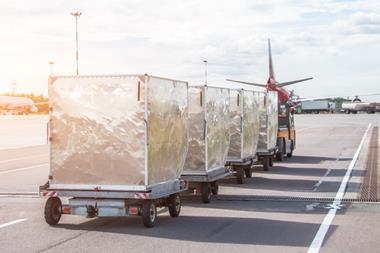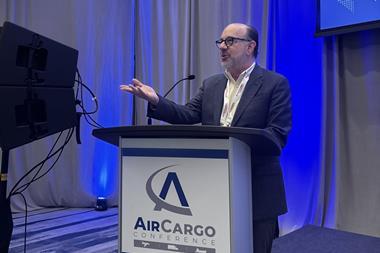A global recession looms ahead but air cargo setbacks look set to be short-lived, writes Airforwarders Association (AfA) executive director Brandon Fried.
The recent half-point raising of interest rates by the US Federal Reserve signals that inflation still lingers within the American economy as the likelihood of a global recession seems more realistic.
Despite the recent monetary policy moves over the last year, most in US freight transport see a recession on the horizon, but fortunately, any setback will be short-lived.
Freight forwarders continue to see a reduction in shipment volume, which many feel is normalising as the world begins to emerge from the pandemic. Their airline partners agree as passenger travel continues at an all-time high.
A recent order of 100 Boeing B787 cargo-friendly Dreamliner planes for United Airlines also signals the carrier believes in an airfreight-friendly future.
Boeing agrees, too, since the last B747 produced, a B747-8 freighter version, is going to cargo carrier Atlas Air.
Recession may come, but forwarders, airlines, and plane builders think air cargo and its benefits are here to stay.
US battles supply chain headache
The director of the Port of Los Angeles is traversing the country to reclaim lost cargo volumes as shippers continue to avoid the nation’s busiest west coast port.
The sinking shipment levels are because of a slowing economy and continued uncertainty over the contract talks between the International Longshore and Warehouse Union (ILWU) and the Pacific Maritime Association (PMA).
Cargo owners tired of the ambiguity are finally redirecting some west coast cargoes to US east coast ports. The pandemic taught supply chain managers a critical lesson in the value of spreading risk and lessening dependence on just one entry point for imports.
Southern California ports, unfortunately, are paying the price of congestion, high rates, and the punitive detention and demurrage fees common during the height of the pandemic.
The real hero in December was the US Congress which acted on a Biden Administration request to avert a nationwide freight rail strike.
The Railway Act of 1926 allowed the president and Congress to intervene in disputes that would severely hamper the nation’s trade and commerce.
Had no agreement been reached, a rail strike could have brought domestic transportation of 25% of US commodities to a grinding halt during one of the busiest times of the year for carriers.
It would also devastate the nation’s economic recovery after the pandemic by clogging the highway system and furthering the airport congestion issue.
Freight forwarders and their transportation partners, including airlines and airports trucking companies, know there may be small economic bumps ahead, but the significant challenges are not dissipating.
Industry insiders plan to gather at the upcoming AirCargo 2023 conference in February to discuss maritime and airport congestion, talent acquisition, cyber security, environmental sustainability, and regulatory issues.
The future remains bright but the smart freight people will be in Nashville in Tennessee to understand how to capture its success.
https://www.aircargonews.net/monthly-exclusive/prevention-is-better-than-an-air-cargo-cure/
https://www.aircargonews.net/cargo-airport/airforwarders-association-calls-for-urgent-investment-in-air-cargo-at-us-airports/
https://www.aircargonews.net/policy/environment/airforwarders-association-building-a-sustainability-plan-that-will-work/










